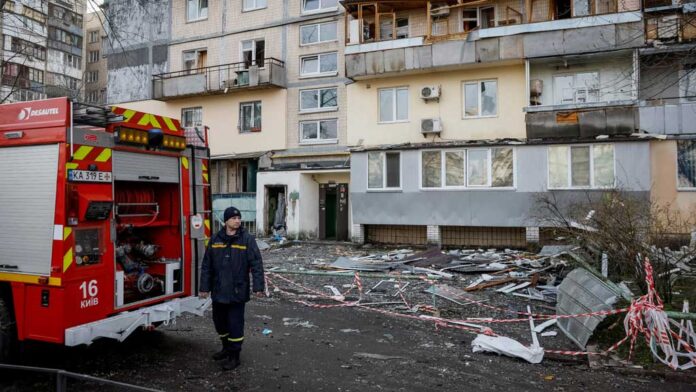Ukrainian and U.S. delegations met on Sunday to discuss measures for safeguarding energy facilities and critical infrastructure, Ukraine’s defense minister stated. The talks are part of U.S. President Donald Trump’s diplomatic efforts to end the three-year-long war.
The meeting in Saudi Arabia took place ahead of Monday’s scheduled discussions between U.S. and Russian delegations. Meanwhile, U.S. special envoy Steve Witkoff expressed optimism about ending Europe’s most devastating conflict since World War Two.
“I believe that (Russian President Vladimir Putin) wants peace,” Witkoff told Fox News on Sunday.
“I think Monday’s discussions in Saudi Arabia will lead to real progress, particularly concerning a Black Sea ceasefire for ships from both nations. From there, the situation could naturally evolve into a broader ceasefire,” he added.
Ukrainian President Volodymyr Zelensky said his country’s delegation was engaging in a “completely constructive manner,” emphasizing that “the conversation is quite useful, and the delegations’ work continues.”
“But regardless of what we discuss with our partners today, the key is for Putin to issue a genuine order to halt the strikes,” Zelensky stated in a televised address.
Leading Ukraine’s delegation was Defense Minister Rustem Umerov, who noted that such diplomatic efforts aim to “bring a just peace closer and strengthen security.” However, Zelensky also characterized Sunday’s discussions as largely “technical.”
Last week, Putin accepted Trump’s proposal for both Russia and Ukraine to halt attacks on each other’s energy infrastructure for 30 days. However, that limited ceasefire quickly became uncertain, as both sides continued to report strikes.
A large-scale Russian drone attack on Kyiv overnight resulted in the deaths of at least three people, including a 5-year-old child, causing fires in high-rise buildings and damage throughout the capital, Ukrainian officials reported on Sunday.
Meanwhile, Russian authorities said their air defenses had intercepted and destroyed 59 Ukrainian drones targeting southwestern regions, with one person killed in Rostov due to the attacks.
Zelensky, facing continued Russian advances in eastern Ukraine, has endorsed Trump’s call for a temporary 30-day ceasefire.
‘UNDER CONTROL TO SOME EXTENT’
Trump stated on Saturday that efforts to prevent further escalation of the Ukraine-Russia war were “somewhat under control.” The U.S. is aiming for a broad ceasefire within weeks, with hopes of securing a truce agreement by April 20, according to Bloomberg News, which cited sources familiar with the negotiations.
On Sunday, White House National Security Adviser Mike Waltz said the U.S. is working through various confidence-building measures to help end the war, including discussions about Ukrainian children taken into Russia.
Regarding the broader negotiations, Waltz explained that after securing a Black Sea ceasefire, “the next step will be discussions on the line of control, essentially the actual front lines.”
“That will involve detailed talks on verification mechanisms, peacekeeping measures, and freezing territorial positions,” Waltz added. “Then, of course, we will address a broader and permanent peace agreement.”
Trump’s engagement with Putin—two publicly confirmed phone calls and possibly other undisclosed communications—has unsettled European leaders. Many fear Washington may shift its priorities away from Europe in pursuit of a wider deal with Russia that could involve oil prices, the Middle East, and geopolitical competition with China.
Britain and France are spearheading European initiatives to enhance military and logistical aid for Ukraine. Several nations have also announced plans to boost defense spending, aiming to reduce reliance on the U.S.
However, Witkoff on Sunday dismissed concerns among NATO allies that a peace deal in Ukraine might embolden Putin to invade other neighboring countries.
“I don’t believe he wants to take over all of Europe. This situation is very different from World War Two,” Witkoff stated.



